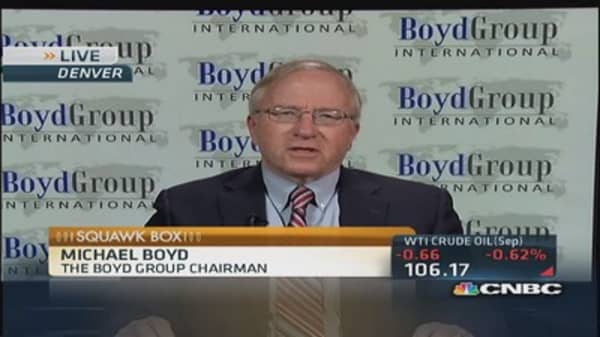He said the issue with the merger is "not so much competition," because airlines will be reducing capacity regardless, but rather that it would provide access to underserved airports.
"There are four dozen small communities that will get American Airlines branded service out of this deal. That gives them access to the rest of the world, a whole lot better than today," he said. "Overall, would the consumer be better off as a result of this? I think the answer is yes. Will fares go up? Bank on it. They are going to go up regardless."
In a lawsuit on Tuesday, the Justice Department said the deal would result in the creation of the world's largest airline and that a combination of the two companies would reduce competition for commercial air travel in local markets and would result in passengers paying higher airfares and receive less service.
(Read more: American, US Air will fight gov't on merger)
When asked about the potential near-monopoly that a combined US Airways/AMR would have at certain airports, including Washington's Reagan National Airport, Boyd said access also would be limited if the new company were forced to sell its position to other carriers.
"That means Bangor, Maine, will lose service to Washington National because those [carriers like Jet Blue and Southwest] don't have the equipment that can serve Bangor. That means places like Sarasota will lose service," he added. "Smaller communities will get shafted by that kind of a divestiture at this point."
Increased access, he said, is more important than lower prices, because additional access will create jobs and better serve communities that would otherwise be missed. "We're beyond the point of hoping to get low, affordable air fares," he said.
"I hate mergers," he said. "But this sort of thing, right now, in terms of business for small communities, it pains me to say it, but this merger would be good for that."



